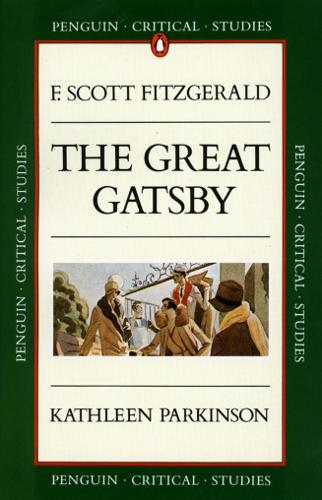
Critical Studies: The Great Gatsby
(Paperback)
Publishing Details
Critical Studies: The Great Gatsby
By (Author) Kathleen Parkinson
Penguin Books Ltd
Penguin Books Ltd
1st February 1989
27th October 1988
United Kingdom
Classifications
General
Non Fiction
Literary studies: c 1900 to c 2000
813.52
Physical Properties
Paperback
144
Width 129mm, Height 198mm, Spine 8mm
112g
Description
Kathleen Parkinson places this brilliant and bitter satire on the moral failure of the Jazz Age firmly in the context of Scott Fitzgerald's life and times. She explores the intricate patterns of the novel, its chronology, locations, imagery and use of colour, and how these contribute to a seamless interplay of social comedy and symbolic landscape. She devotes a perceptive chapter to Fitzgerald's controversial portrayal of women and goes on to discuss how the central characters, Gatsby and Nick Carraway, embody and confront the dualism inherent in the American dream.
Author Bio
F. Scott Fitzgerald was born in 1896 in St Paul, Minnesota, and went to Princeton University, which he left in 1917 to join the army. He was said to have epitomized the Jazz Age, which he himself defined as 'a generation grown up to find all Gods dead, all wars fought, all faiths in man shaken'. In 1920 he married Zelda Sayre. Their traumatic marriage and her subsequent breakdowns became the leading influence on his writing. Among his publications were five novels, This Side of Paradise, The Great Gatsby, The Beautiful and the Damned, Tender is the Night and The Last Tycoon (his last and unfinished work); six volumes of short stories and The Crack Up, a selection of autobiographical pieces. Fitzgerald died suddenly in 1940. After his death The New York Times said of him that 'He was better than he knew, for in fact and in the literary sense he invented a 'generation'. . . he might have interpreted and even guided them, as in their midle years they saw a different and nobler freedom threatened with destruction.'
